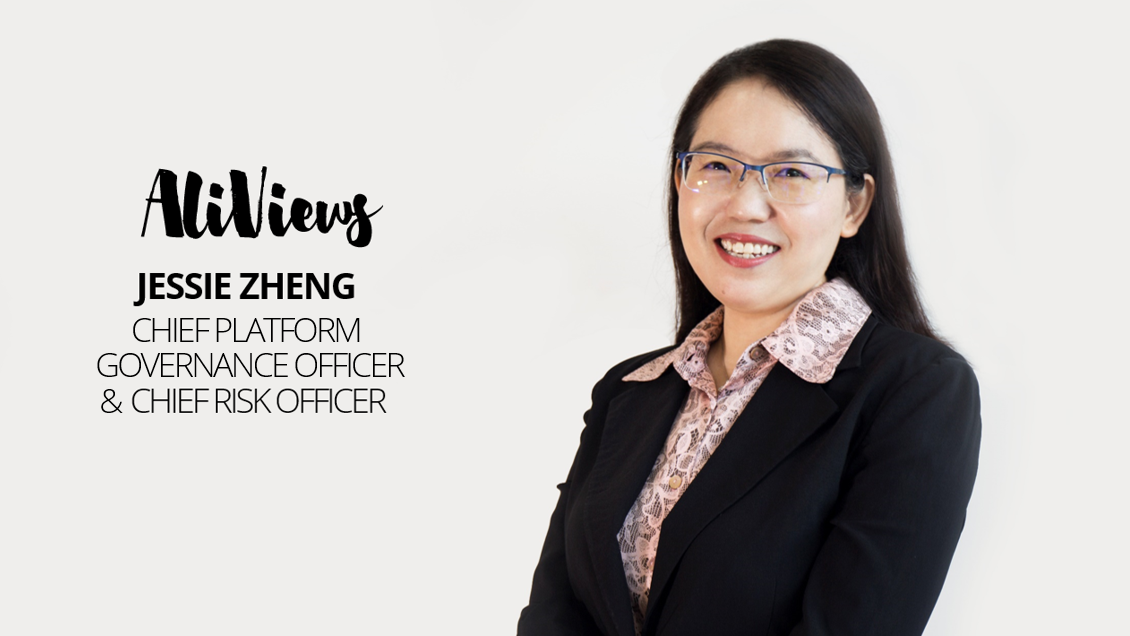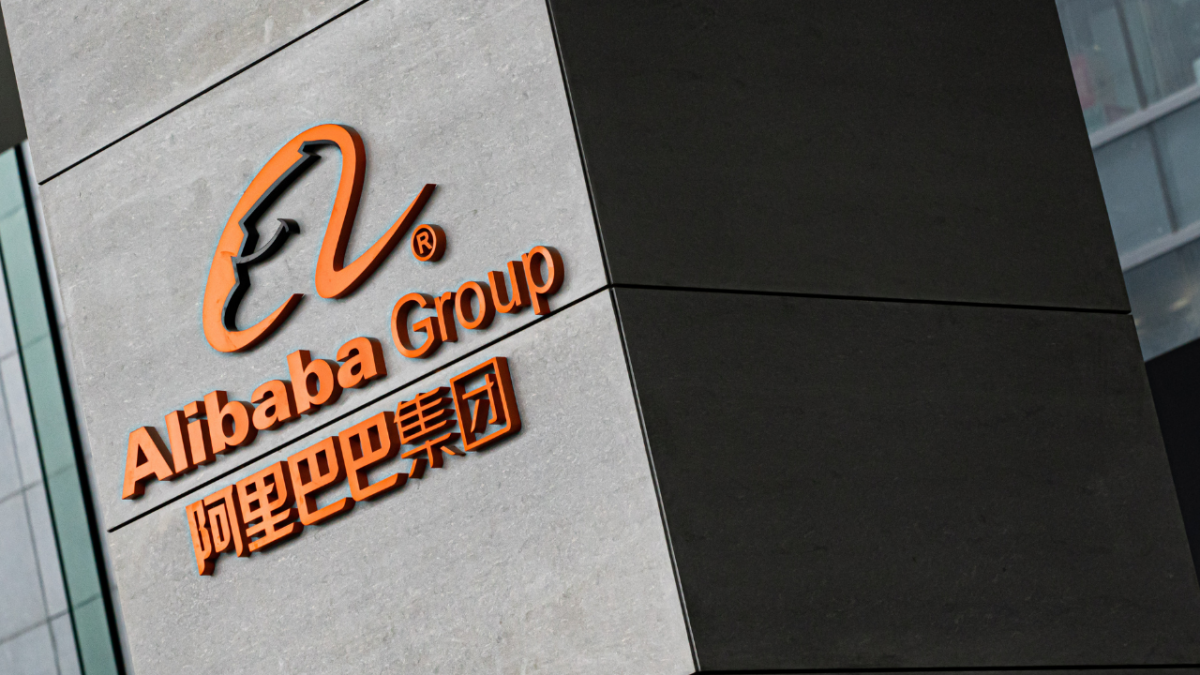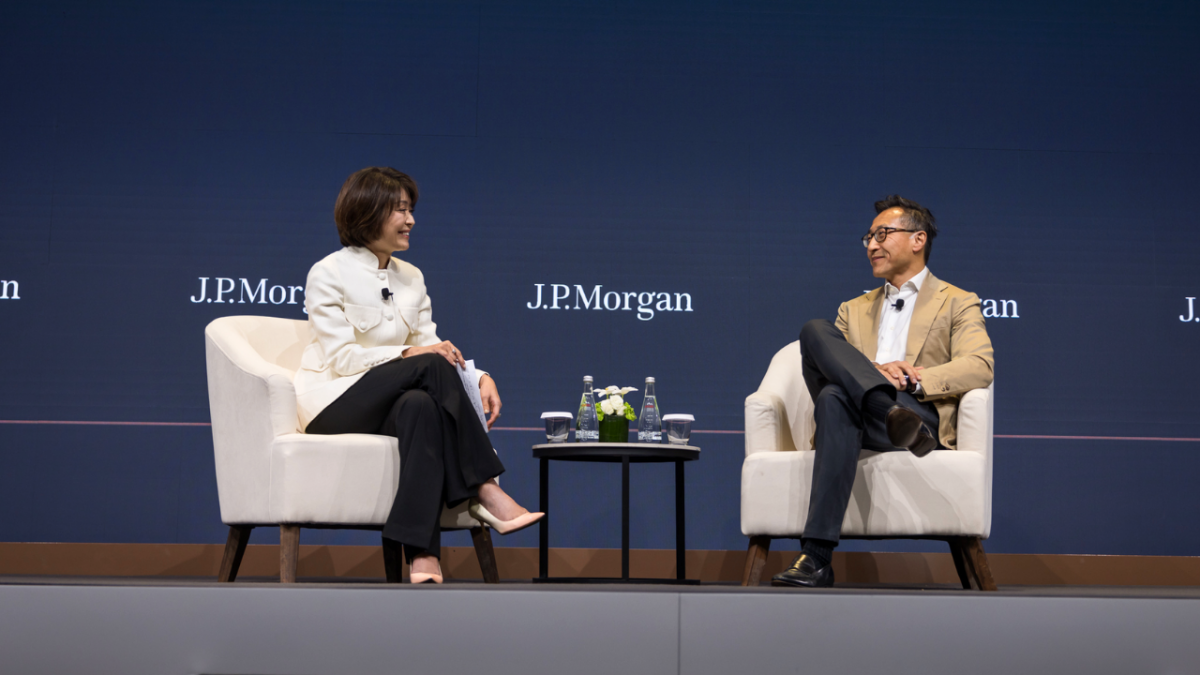


Jessie Zheng has been Alibaba Group’s chief platform governance officer since December 2015, responsible for the governance of the company’s retail and wholesale marketplaces. She’s also held the title of chief risk officer since December 2017, responsible for data and information security Alibaba’s platforms.
For the inaugural issue of “AACA New Insights,” a digital magazine launched by the Alibaba Anti-Counterfeiting Alliance to share information and knowledge with its members, Zheng sat down for an interview with Hugo Zhang, VP of RELX Group and chair of the International Publishers Copyright Protection Coalition in China, and Angela Shi, senior brand protection manager of New Balance. In the interview, Zheng discussed Alibaba’s efforts to combat counterfeiting as well as the importance of collaboration in protecting intellectual-property rights, especially in the digital era.
Alibaba Group has dedicated itself to crackdowns on infringement and counterfeiting through platform governance for many years. Why is this so important to the company and how did you become involved with brand protection?
18 years have passed since Alibaba started intellectual property protection in 2002. At the time, IP protection was conducted through emails only. We also did not have Taobao and AliExpress back then. Our core business consisted of our B2B platform, Alibaba.com. As time progressed and our businesses changed, our overall IP protection work evolved as well. From the development of our B2B business to the rise of Taobao, new requirements for IP protection were always emerging.
Before I took over the work in 2015, the company needed to decide whether IP protection should be run independently or be integrated into our business units.
They wanted me in this position because they needed an Alibaba partner who could approach the problem with Alibaba Group’s overall strategy in mind. Jack Ma told me, “It is not just about IP protection but also about the future reputation of Alibaba.”
I found that if we integrated IP protection into our individual business units, the work would be affected by business-development considerations and there would not be enough emphasis placed on IP protection. That’s why a separate independent unit, our Platform Governance department, was established after I took over.
What was the impetus for establishing the Alibaba Anti-Counterfeiting Alliance?
AACA was established in January 2017, when there were very few alliances at home and abroad that focused on leveraging the power of technology to protect IP. Against such a backdrop, we wanted to set up an alliance to embrace the thinking and solutions most suited for the age of the internet.
We invited partners representing 30 global and Chinese brands to join in the establishment of AACA. Since then, we have moved forward in the direction that we believe is right. We have been lucky so far – so many brand owners and IP owners are placing their trust on this platform to join forces on IP protection.
How does AACA seek to realize its mission?
AACA is an organization where all parties in IP protection, including us and brand owners, work closely together. The mission of AACA is to advance IP protection for the future. More importantly, AACA should explore how to best create social value, take on responsibilities of IP protection, and build a strong infrastructure of commerce.
Every brand owner has a team and service providers tasked to protect their rights and interests. But what truly differentiates AACA is our passion for IP protection, our commitment towards social responsibility and our aspiration that a group of ambitious people will work together to accomplish something that will make them proud. That’s why AACA exists.
In the era of the digital economy, what are the roles and responsibilities of brand owners, e-commerce platforms and law-enforcement authorities in anti-counterfeiting governance?
When it comes to IP protection, collaboration needs to be put into practice. We can’t talk about IP protection without a collaborative environment.
To protect a brand, we have to confirm who the owner is and which rights the owner has registered. We also need the cooperation of law-enforcement authorities. Through years of contact with law-enforcement authorities, we understand the challenges they face. They need to deal with many malicious actors, not only counterfeiters. On the one hand, we need to partner with law-enforcement authorities, so we channel a lot of resources to support them on IP protection. On the other hand, both platforms and brand owners should try to understand the pressures law-enforcement authorities are facing and give them support to help them improve efficiency, so that they can better protect IP.
The consensus among all parties is that active participation and collaboration is the only answer.
As counterfeiting technologies keep improving, how does Alibaba use technologies to handle IP protection?
At an annual Alibaba kickoff meeting, our CEO, Daniel Zhang, highlighted our technology-driven and data-driven IP protection approach. As we all know, AI is getting stronger, but we are also facing new challenges. For example, formats of online expression are becoming richer and more diverse, from text and images to short videos and livestreams. The development is always ongoing. Hence, IP-protection technologies have to be updated and advanced as well.
We should develop two core capabilities: cutting-edge technology and well-designed platform rules.
Technology is composed of the following: first is detection, i.e. the ability to recognize various forms of texts, images, and speech. Second is the computing capability. We upload a massive inventory of information every day, and we demand real-time processing, which requires powerful computing and processing capabilities. There are also timely takedown capabilities – any counterfeit product that manages to get past our initial checks needs to be identified and handled swiftly by our platform. These capabilities should be updated continuously. Given the importance of technology and algorithms, half of our Platform Governance team members are engineers.
It’s also important to establish robust and fair platform rules. Why does it matter? Because we’re a platform; we’re not just working with individual brand owners, but also buyers and sellers who represent both sides of an equation. We care about all stakeholders in our ecosystem and must maintain a fair and balanced approach. This is particularly true in light of the significant level of takedown notices submitted with malicious intent. A one-sided decision is not enough to support a sound and correct judgment. We should design a good mechanism that leverages economic incentives and deterrents to make sure fewer people are tempted to be dishonest. In this context, designing robust and fair platform rules is incredibly important.
Moving forward, what are some areas you plan to focus on?
Looking at Alibaba’s IP protection efforts over the past few years, we have focused many of our efforts on brand protection. In addition to that, we plan to further enhance our copyright protection capabilities, especially the protection of other digital assets, such as images, videos and other original works in digital form.
What suggestions on IP protection can Alibaba offer to other e-commerce platforms?
Today, the line between e-commerce and other types of internet platforms is getting blurry. Internet platforms committed to IP protection should join hands as we face rising issues. Counterfeiters move the production and sale of counterfeit products across platforms and borders. Because of that, working in isolation is ultimately not conducive to IP protection, which is why I’m calling on continued partnership with other platforms who are also committed about IP protection.
If we increase our exchanges and advance together, we might establish some industry standards and reach a consensus. Our subsequent actions can then improve the overall performance of the industry. This is what we are hoping for.
Sign up for our newsletter to receive the latest Alibaba updates in your inbox every week.





